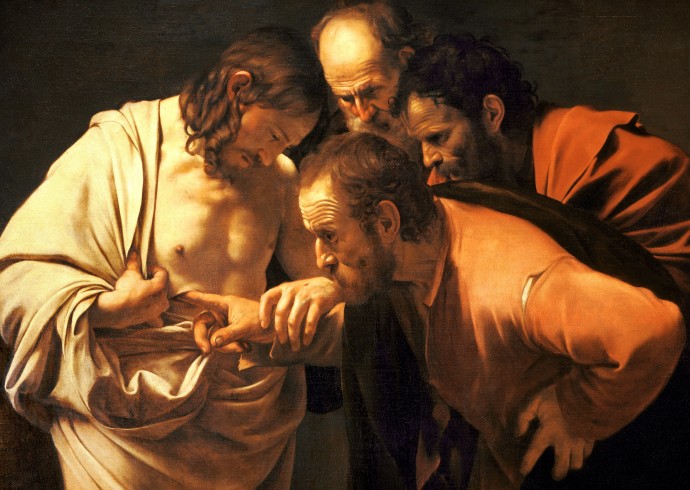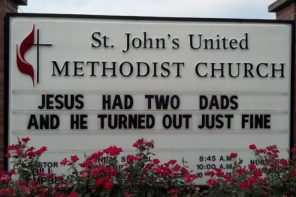Last week the The Walking Dead brought its fifth season to a close with a stunning 15.8 million viewers, an accomplishment once unimaginable for a horror franchise. In a thought-provoking coincidence this finale kicked off Holy Week, a sacred period for Christians that culminates symbolically in a particularly terrifying narrative.
In general, the horror genre is about the inversion of the natural – and thus sacred – order. Consider Victor Frankenstein who creates new life (previously the exclusive domain of God) from dead scraps, H.P. Lovecraft’s Great Old Ones and their madness-inducing forays into our mundane universe, and, yes, the zombie, now a staple of popular culture, a shambling reversal of the inexorable power of death.
In their overturning of our understanding of the world, these classic tropes of horror are what I would call theological terrors. They challenge the sacred order by introducing existential chaos, totems of a new world order where the status quo is wiped out amidst a frenzy of gods and monsters.
Within the Bible, the natural order is routinely shattered, never more famously than during the Easter narrative.
While Jesus hinted at a reversal of the natural order when he reanimated Lazarus, it is the Easter narrative where Scripture downshifts into full horror-movie mode. Aside from the physical torture of Jesus at the hands of the Romans (think of the gore-filled depiction in Mel Gibson’s The Passion of the Christ), readers of the Gospels are treated over Easter weekend to a parade of horror genre tropes.
The natural, sacred, and accepted orders are turned on their collective heads throughout the final days of Holy Week when, after Jesus breathes his last, the light of day ominously and unnaturally transforms into darkness followed by a rock-splitting earthquake, frightening and supernatural imagery echoed in countless apocalyptic horror narratives in contemporary entertainment.
Following this, the gospel of Matthew, predating the zombie craze in popular culture by several thousand years, reads, “The tombs also were opened, and many bodies of the saints who had fallen asleep were raised. After his resurrection they came out of the tombs and entered the holy city and appeared to many.” While we don’t know whether these revived corpses were muttering “brains” or “shalom,” it’s safe to say that the sudden reappearance of the dead amid unnatural darkness is, read literally, nothing short of a terrifying turn of events.
Fast forward to Sunday where we are confronted with the finale to the Easter story, where as the gospel of Luke tells us, those who saw Jesus “were startled and terrified and thought that they were seeing a ghost.” By this account, while Jesus looked physically as he did before his death, his post-mortem appearance to the disciples was frightening to them—as it would be any time a dead person shows up for his own wake.
While I offer some of these reflections in an ironic spirit, I do think it’s important to acknowledge that religion and the horror genre are dueling narratives revolving around the unknown, of what lies beyond human reason and understanding. I would argue that one of the reasons The Walking Dead consistently draws tremendous ratings is that horror entertainment has emerged as another form of religious language. In some sense, due to the need for palatable religious ritual, the ghastly elements of scripture have been buried, only to arise in the sinister form of vampires, zombies, and malevolent elder gods, symbols that enable us to explore the shadow side of the divine.
It’s fascinating that pastel colors, bunnies, and the ritualistic painting of eggs have come to represent the torture and death of Jesus, the shocking inversion of the natural order, bodies raised from the dead, and a ghostly savior shattering the immutable barrier between life and death.
This is what I would name the horror of Easter, a narrative that, while powerfully hopeful, might also lead us to a darker deliberation of the nature of humanity and our search for the divine (benevolent or otherwise) in a fearsome and mysterious universe.





